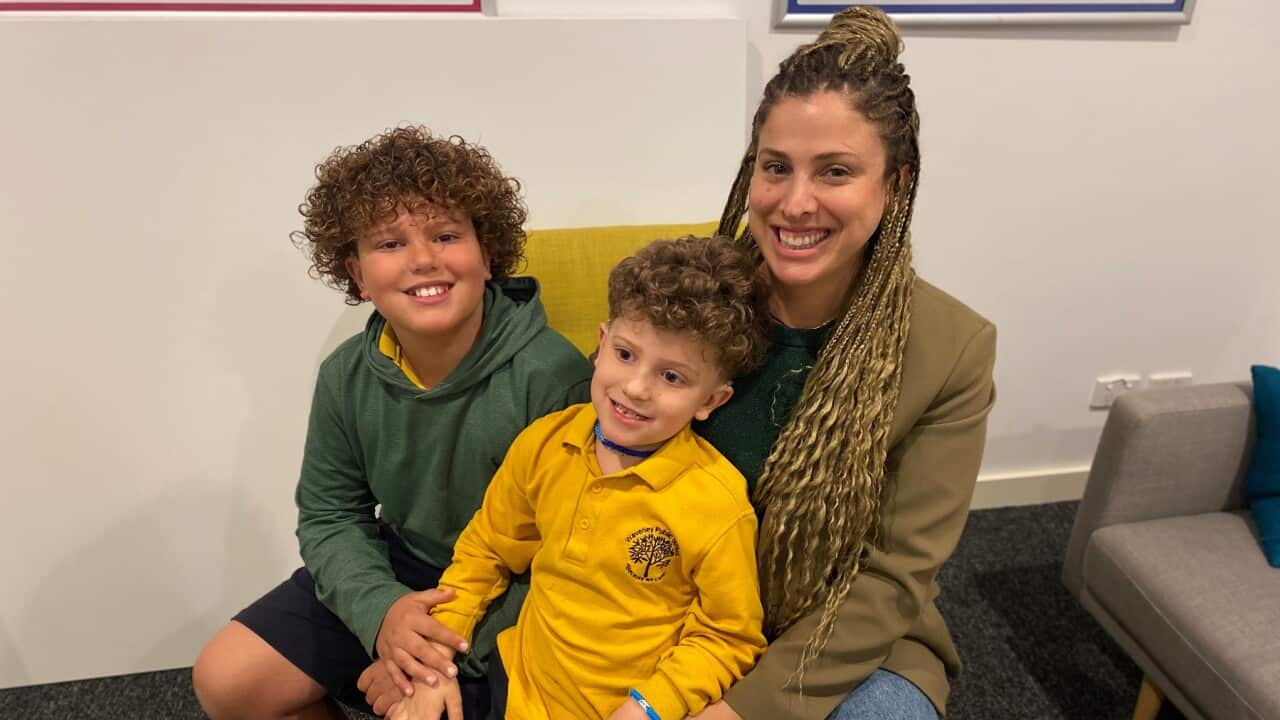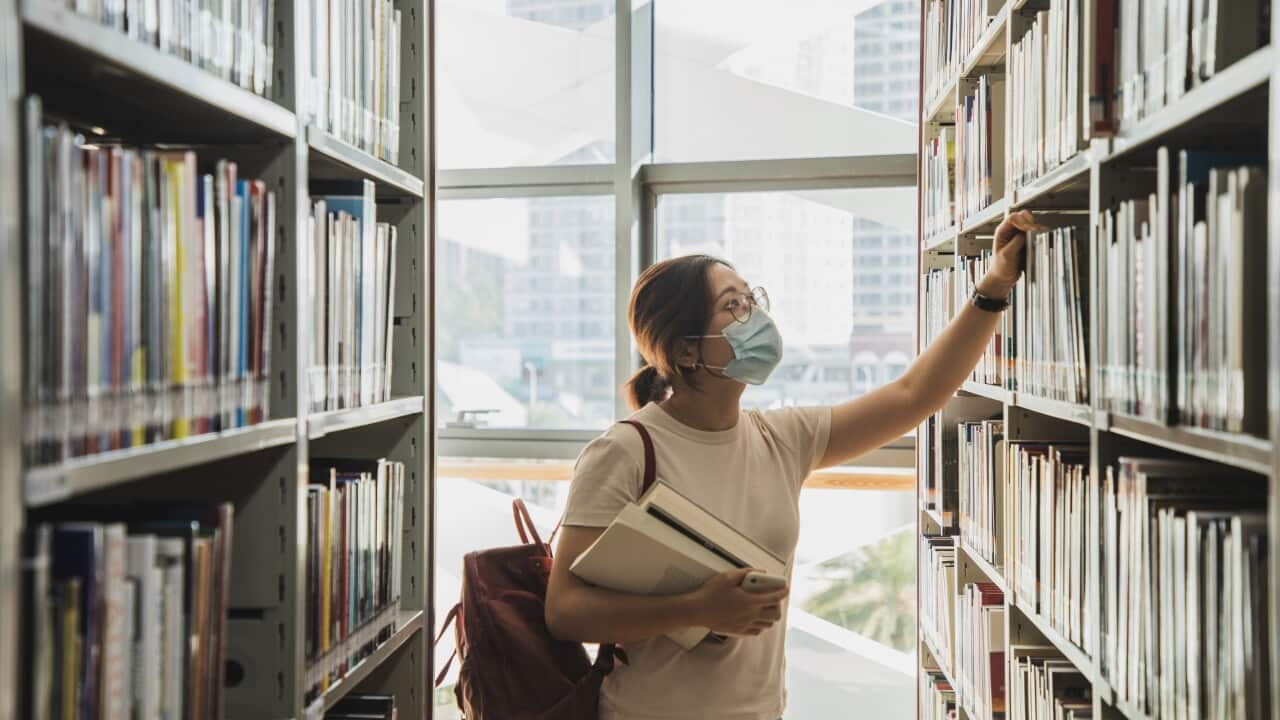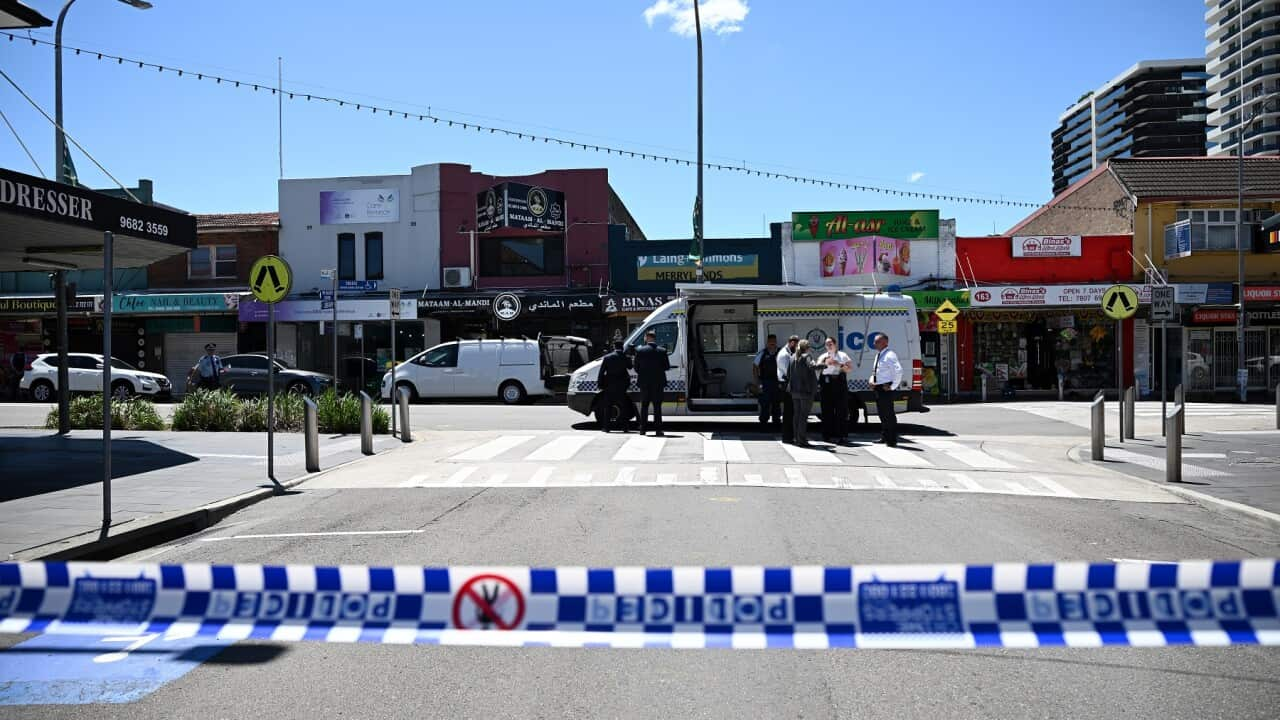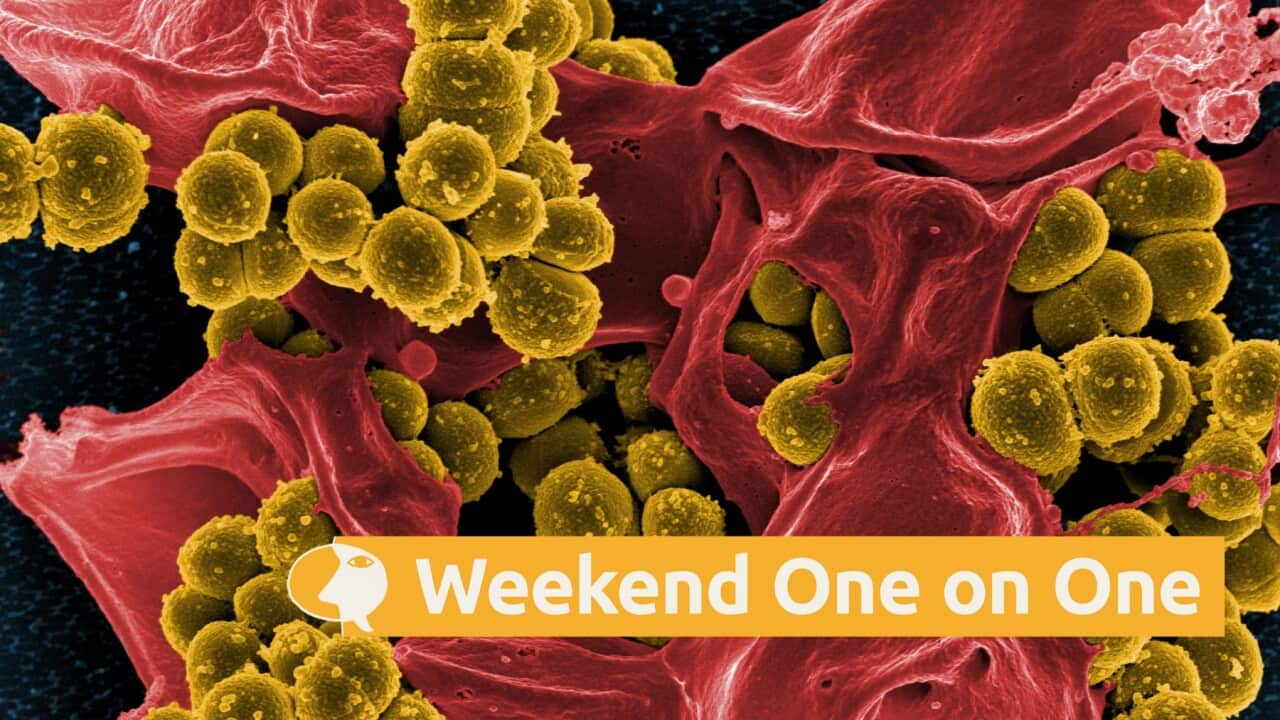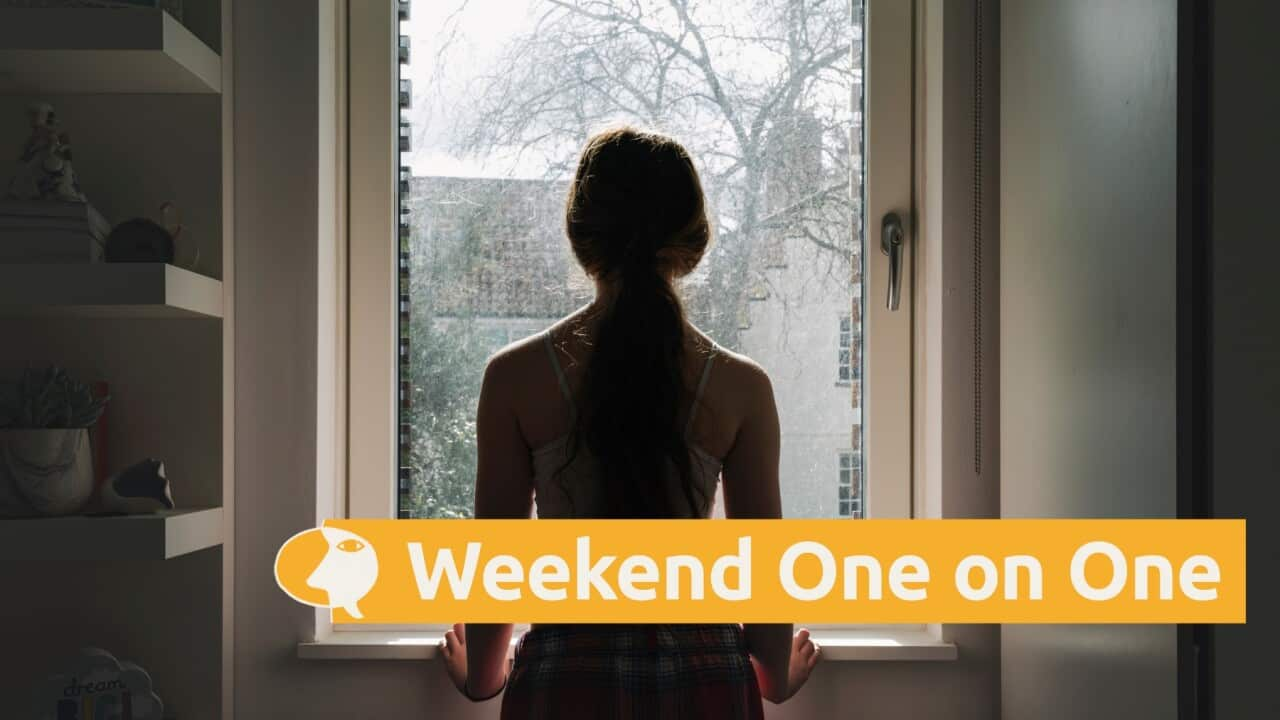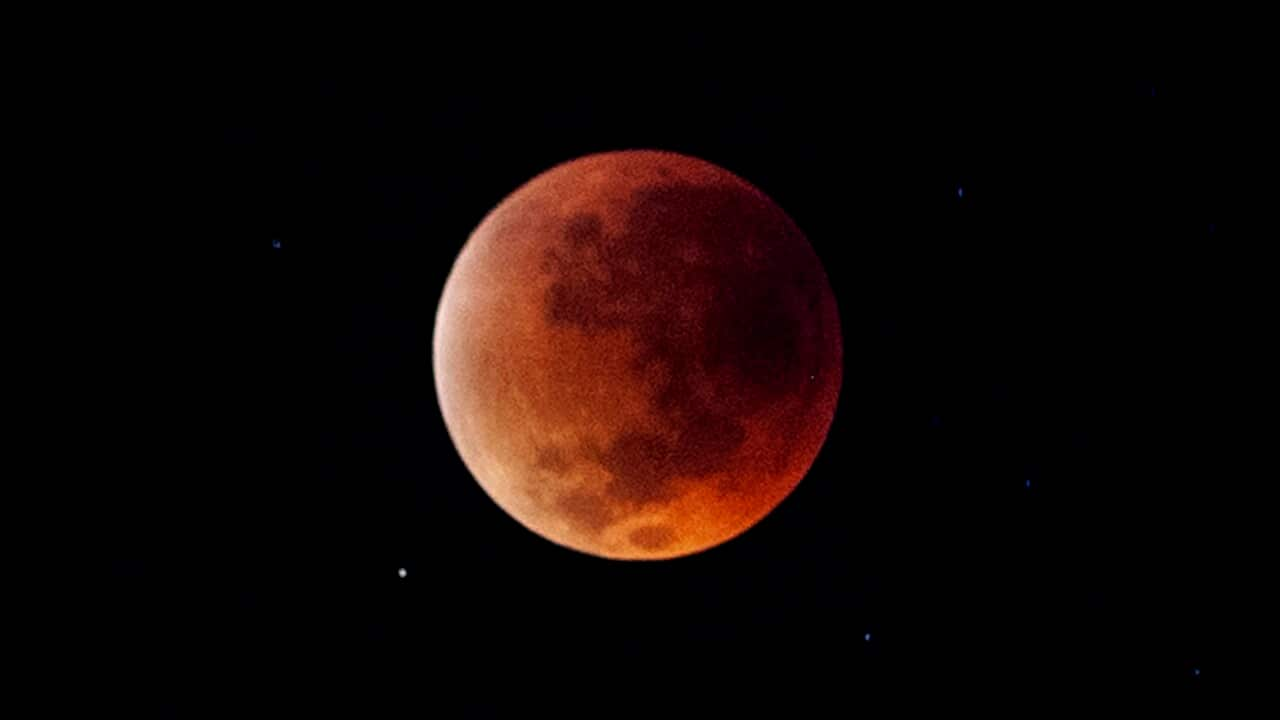Listen to Australian and world news, and follow trending topics with SBS News Podcasts.
TRANSCRIPT:
Baby Rafael is hearing for the first time, with a cochlear implant unlocking a new world of sound.
The small electronic device - which is surgically implanted - helps deaf people perceive sound.
Rafael's mother, Renata Reis, says her son was six months old when he was fitted with the technology.
"That's where the magic happens. There's the beautiful day that we were waiting for this first six months of his life where he could hear us for the first time. That was unbelievable. We were waiting, so excited for this day."
That was 12 years ago.
Rafael, now 13, was diagnosed with profound hearing loss soon after birth.
And so too, were his younger brothers, 10-year-old Gabriel and six-year-old Luca.
The Sydney-based siblings all had the device implanted around the age of six months but it was just the beginning of their journey towards hearing and speaking.
While a cochlear implant can be life-changing, the technology alone is not enough, says Dr Aleisha Davis, CEO of the Shepherd Centre, a not-for-profit that helps children with hearing loss learn to listen and speak.
"There's such a misconception that hearing aids or cochlear implants help a child hear, but they don't. They provide access and the technology helps them hear sound, but brains aren't wired to understand sound at such early ages. So we provide the therapy that enables the children to understand what those signals are and to learn to use them in their everyday environments."
The brothers also took part in the Shepherd Centre's early intervention program.
The children are now thriving, says their mother Renata, who migrated to Australia from Brazil 17 years ago.
Music is a big part of the family's cultural identity and the two eldest boys are members of their school band.
"The program here was essential for them to thrive. You come here for maybe a day in the week, but it's all about the work that you put in every single day, exposing them to language, to sounds and music. They're doing quite well at school. They are very social little people."
It was a decade ago that prominent Japanese hearing health specialist Doctor Akira Takagi first learnt about the work at the Shepherd Centre.
He says in Japan, children diagnosed with hearing loss who wish to receive a cochlear implant don't typically have the surgery until the age of one or two.
In Australia, it's around six months.
"The sooner the surgery the better the outcomes."
And Doctor Takagi adds there's a lack of services in Japan to teach children how to use the devices.
He says he was 'amazed' by the program offered by the Shepherd Centre.
"This is the system I am trying to create in Japan in collaboration with the Shepherd centre."
This month that became a reality with the launch of an early intervention pilot program.
Aleisha Davis says the partnership has been a decade in the making."I am thrilled that it's happening and that we can help many more children than those locally here in Australia. It really will change the way that children grow up learning to listen with cochlear implants in Japan."
Not all children born with hearing impairment use a cochlear implant.
Some families opt for Auslan, while others are bilingual using both sign-language and spoken language.
Shirley Liu, the CEO of Deaf Australia - the main association representing deaf people in Australia - says there is a diversity of experiences.
Speaking to SBS in Auslan, which we've translated to spoken language, she emphasises the need for access to sign language from birth.
"It's not an either/or, black or white, system that you can either have access to sound or access to Auslan and they can be used in conjunction with each other. Our position is that Auslan is essential and it's a valuable and vital language for deaf children to have access to."
Around 90 per cent of deaf children are born to hearing parents.
This means many families are initially unfamiliar with deafness.
That was the case for Liz Spillman, whose two-and-half-year-old son, Louis was diagnosed with hearing loss shortly after birth.
"We didn't know anything about hearing loss. We don't have anyone that's deaf in our family. So it was a new world to us as well."
Louis, who has been fitted with a cochlear implant, has been taking part in therapy sessions at Shepherd Centre every week for the past two years.
"It's incredible. I'm still blown away. At his two-year speech assessment, he was categorised as in the advance section for kids of his age. So that's not just deaf kids, it's kids with typical hearing as well. So he's not just doing well, he's flying."
